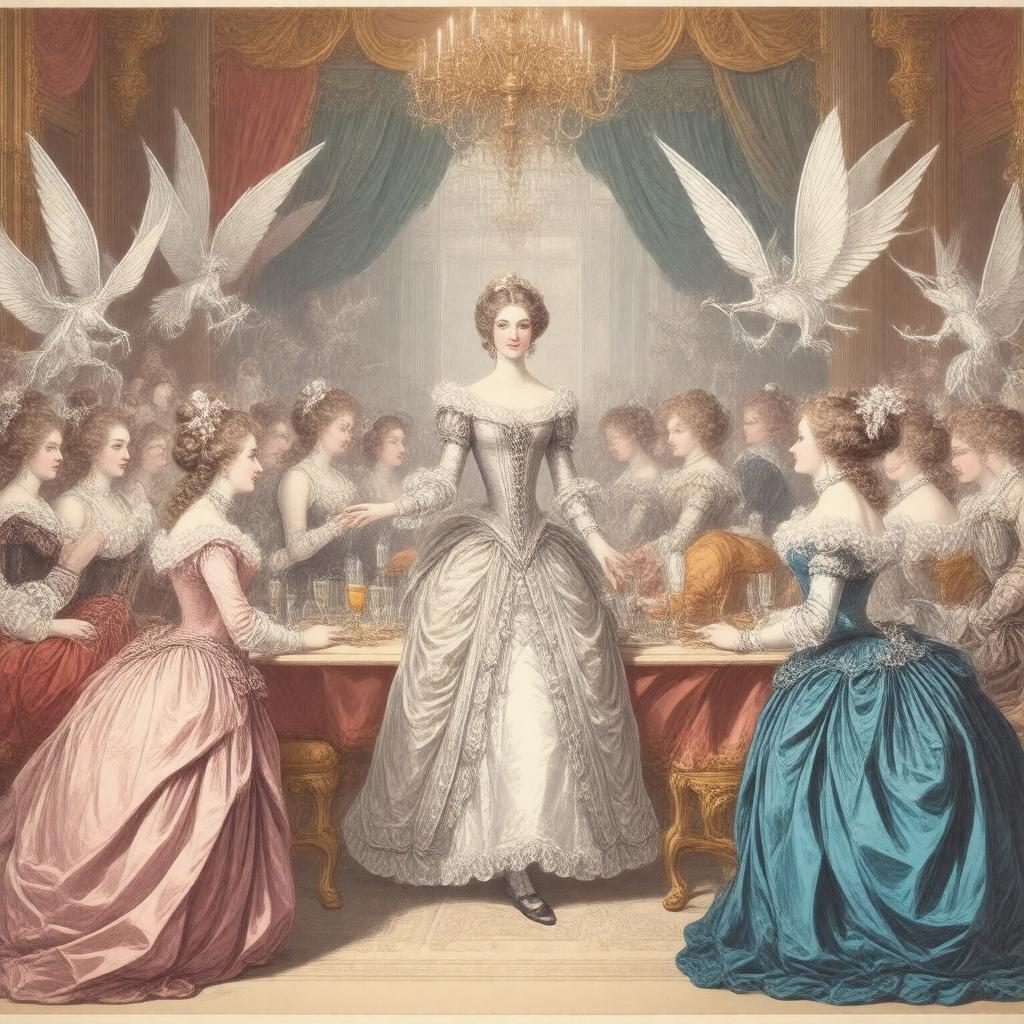Prompt
"Illustration of a lavish, 18th-century English party scene, with elegantly dressed high society individuals, inspired by Alexander Pope's mock-epic poem, The Rape of the Lock, featuring Belinda, surrounded by supernatural sylphs, with a subtle hint of satire and vanity, set against the backdrop of a luxurious London or Hampton Court setting."

